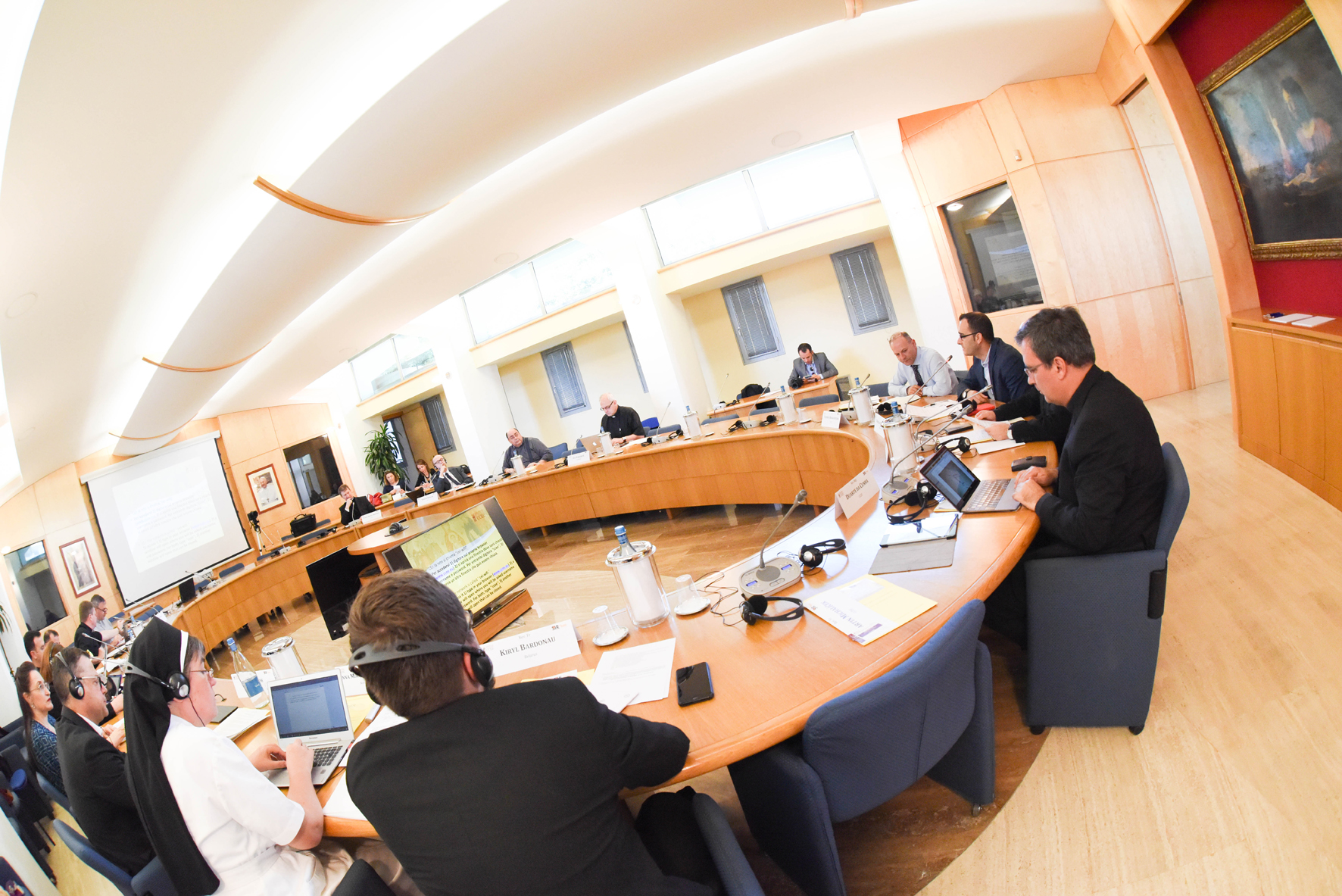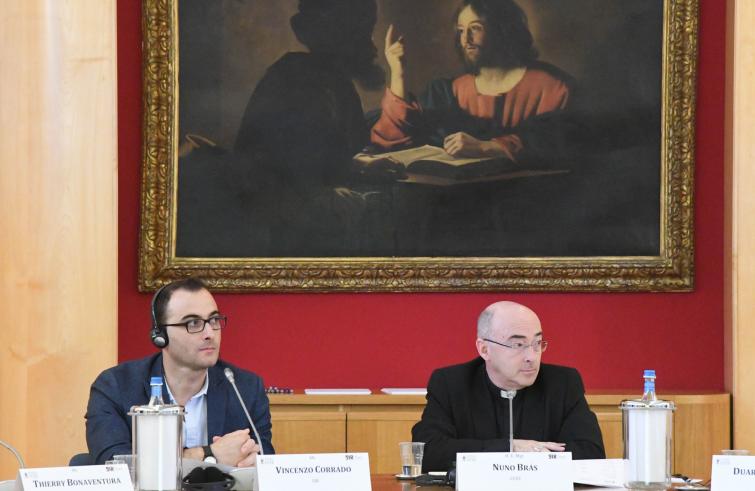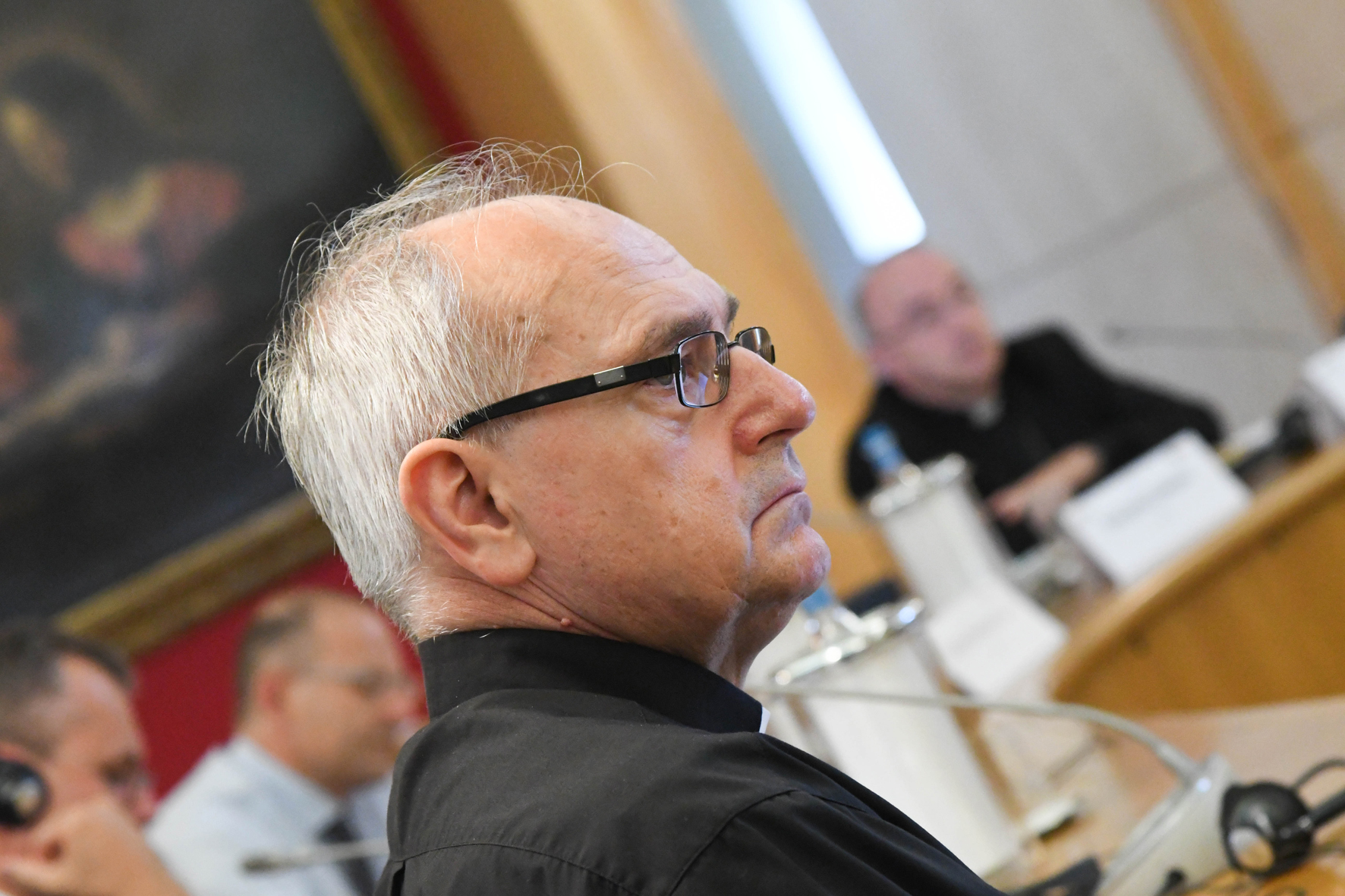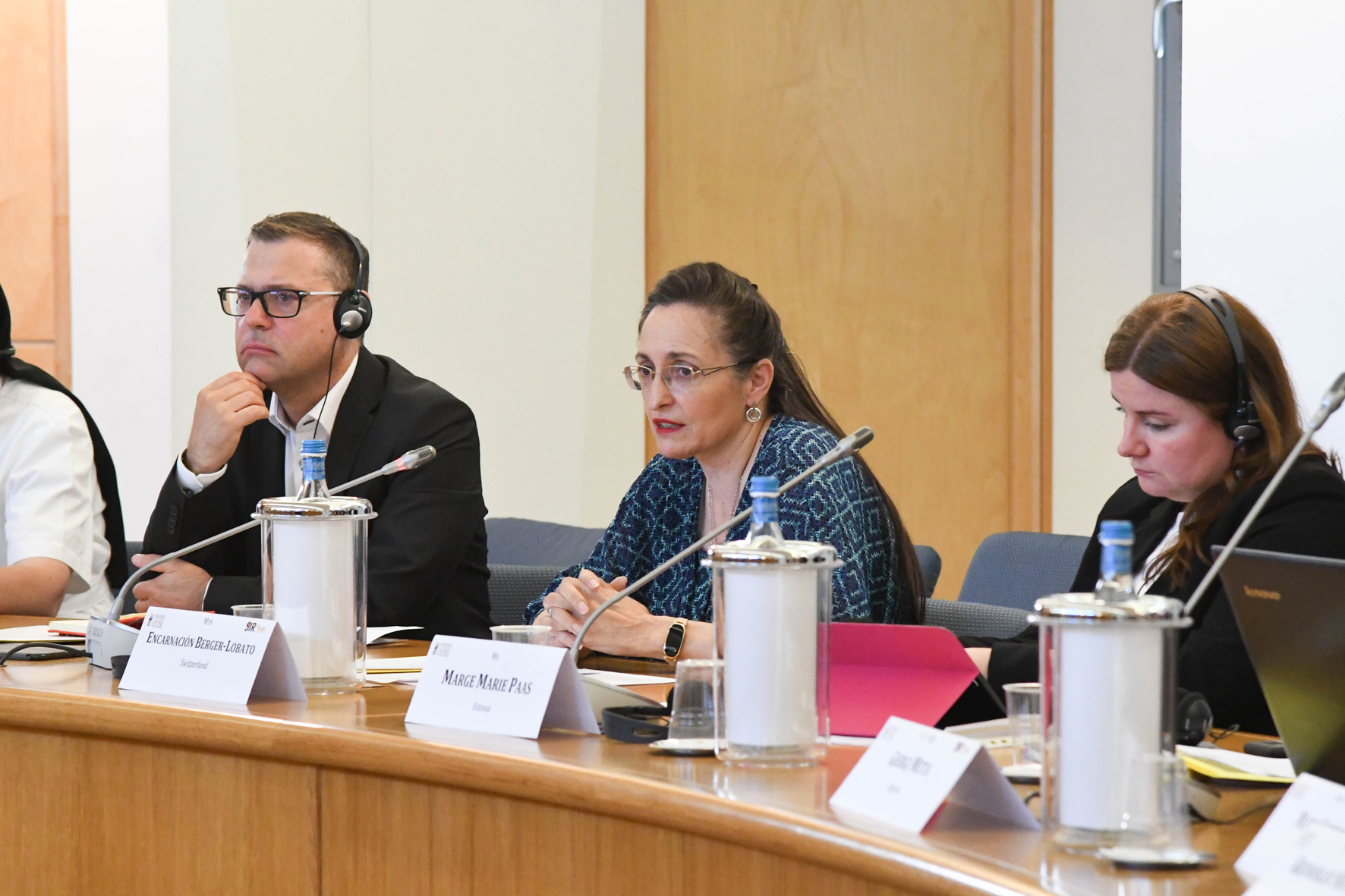Media
Media officers representing nine news outlets from an equal number of European Countries met today in Rome. “It’s a long-cherished dream”, said Msgr. Duarte da Cunha, Secretary General of the Council of the Bishops’ Conferences of Europe, that organized the meeting

A strong sense of belonging to the Church characterizes Catholic news agencies that report the news every day. These ties determine their credibility and define the vantage points and areas of interest of news reports. The editors-in-chief of these news outlets, headquartered in an equal number of European countries, met today in Rome. “It’s a long-cherished dream”, said Msgr. Duarte da Cunha, Secretary General of the Council of the Bishops’ Conferences of Europe (CCEE), that promoted the meeting. In his welcoming address in the seat of the Italian Bishops’ Conference, Msgr. Da Cunha said this is “an appropriate, necessary and opportune time” to meet and “do good onto the European Church.”
“We have a lot to say with our style of communication”, but “while we are accustomed to deal with developments in the area of communication and information” “today we are facing the challenge of social networks and widespread sources of information that undermine our credibility, prompting us to reflect on the prosecution of our commitment. Far from being a demonization of social media, we should bear greater attention to this new realm of communication that is taking shape day after day”, pointed out Vincenzo Corrado, Director of Italian news agency SIR (www.agensir.it), moderator of the meeting.
 The European landscape of Catholic news agencies is very diversified in terms of structures and themes of interest: in Bosnia Herzegovina, Kta Bk BiH, (Katolička tiskovna agncija Biskupske konferencije Bosne i Hercegovine – www.ktabkbih.net) the news agency of the Bishops’ Conference, is chaired by Msgr. Ivo Tomascevic, whose activity is run by two journalists. Owing to a scarcity of resources, the priority is to “cooperate with the different Catholic institutions and parishes” to ensure their direct involvement in reporting on their activities thereby enriching the Church as a whole.
The European landscape of Catholic news agencies is very diversified in terms of structures and themes of interest: in Bosnia Herzegovina, Kta Bk BiH, (Katolička tiskovna agncija Biskupske konferencije Bosne i Hercegovine – www.ktabkbih.net) the news agency of the Bishops’ Conference, is chaired by Msgr. Ivo Tomascevic, whose activity is run by two journalists. Owing to a scarcity of resources, the priority is to “cooperate with the different Catholic institutions and parishes” to ensure their direct involvement in reporting on their activities thereby enriching the Church as a whole.
In Austria, Kathpress (www.kathpress.at), created in 1946, is a consolidated structure linking Eastern and Western Europe, which carries out a cultural, ecumenical and interreligious service inside the continent. The agency, directed by a lay media officer, Paul Wuthe, also serves as “press office” for the Bishops’ Conference. Catholic news and communication is conveyed through three portals in German, French and Italian – independent from Swiss bishops and which differ in terms of news content and focus, said Encarnacion Berger-Lobato, in charge of communication for the Swiss bishops (kath.ch, cath.ch e catt.ch).
Along with Germany’s KNA news agency (Katholische Nachrichten Agentur – www.kna.de), German language news peculiarities and economic resources include the Centrum Informationis Catholicum, based in Rome, a news desk that provides Vatican news for the readers of these three news agencies. The Croatian news agency IKA (Informativnu katoličku agenciju), run by Fr Anton Šuljić, was created 25 years ago as a “new presence of the Church in the public realm”, said Fr Jerko Valkovic. Its current reorganization includes merging with the Catholic radio and the creation of a web portal to meet new challenges.
Also Belgium has two news outlets that are closely connected with the Bishops’ Conference: French-language news service Cathobel (www.cathobel.be), which, said Fr Tommy Scholtes, spokesperson of Belgian bishops, cooperates also with French TV network KTO, and Flemish news agency Kerknet (www.kerknet.be), directed by Geert de Kerpel due to merge with the Catholic weekly “Kerkleven”. Ecclesia (www.agencia.ecclesia.pt) is the Catholic news agency based in Portugal; SIC is the Catholic news agency in Spain (www.agenciasic.es).
Polish news agency KAI (Katolicka Agencja Informacyjna – kair.ekai.pl), now in its 25th year of activity, was created with the purpose of “informing lay news media on the life of the Church.” The major challenge faced today by the agency run by a lay media officer, Marcin Przeciszewski, is strengthening the cooperation between Eastern and Western European countries. It should be noted, said the agency’s deputy editor-in-chief Tomasz Krolak, that the website of the news service registers an average of 3 thousand visitors a day; tweets reach out to 50-100 thousand people every day.
The Directors of News Agency agree on the common goal of increased cooperation and sharing. Now due reflection should be made on the possibility to increase interaction via a lingua franca –which, given the different idioms, is a major challenge – and work on the definition of a “platform” to strengthen synergy on the occasion of important events, such as the upcoming Bishops’ Synod in October or European meetings – such as CCEE assemblies or meetings on matters of mutual interest that include migration, ecology, or EU accession prospects of Balkan countries.